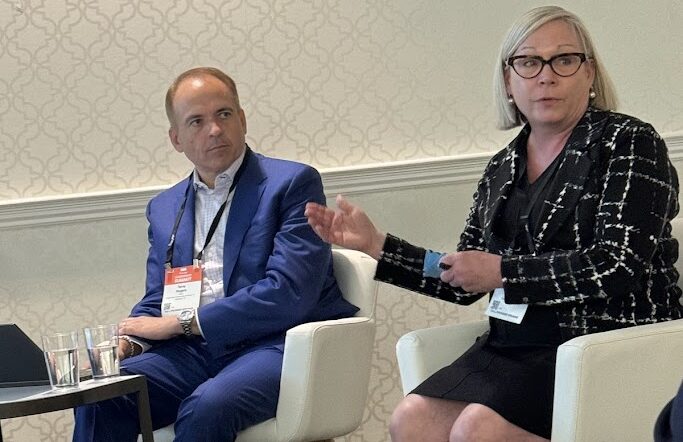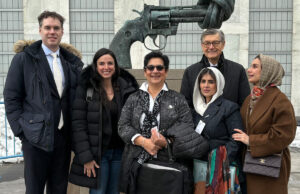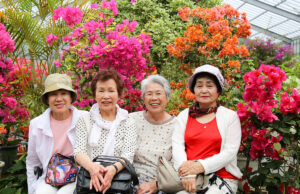A growing number of aging services providers are recruiting foreign-born immigrants and refugees to staff their care settings worldwide. This recruitment phenomenon was the topic of a rich discussion at the 2023 Global Ageing Network International Workforce Summit in Glasgow, Scotland.
During the session, U.S. and Canadian colleagues explored current recruitment, training, and retention strategies employers use to attract foreign-born caregivers. The discussion included high-level perspectives on the ethics of these strategies, including the impact of worker migration on immigrants’ countries of origin.
Highlights from the Panel
- Katie Smith Sloan, President and CEO of LeadingAge and the Executive Director of the Global Ageing Network, moderated the discussion. Robyn Stone, Senior Vice President and Co-Director of the LTSS Center at LeadingAge, emphasized that the issue “has captured the attention of provider communities across the globe” where “reliance on foreign-born workers is essential.”
- Daniel Lindh, President and CEO of Presbyterian Homes and Services, has offices in the Philippines where they train Filipino people on the core competencies of older adults. More than 23% of the nursing staff at Presbyterian Homes comes from the Philippines and many have stayed longer than contractually required. Lindh noted the “competition in the job market is fierce,” and they are competing against other industries like the cruise and airline industries. He hopes to open additional offices in Kenya and Nigeria in the future as well.
- Terry Rogers, CEO of Westminster Communities of Florida, Inc., has employed many refugees from Afghanistan and the Ukraine. His organization has resettled over 350 families and provided housing, transportation, and other essential services to them. Residents and staff have worked together to support and teach them English as they acclimate to living in the U.S.
- Donna Duncan, CEO of Ontario Long Term Care Association, represents many long-term care homes in Ontario, Canada. She has witnessed the global shortage aged care providers are facing, coupled with increased demand for talent. Many organizations are reliant on workers from India, but current political roadblocks have made it more difficult to obtain staff from other countries. Further, those who can immigrate to Canada prefer to stay in urban areas such as Vancouver and Toronto, creating a void of care in rural areas.
Panelists asked participants to envision how provider organizations worldwide might come together to address global workforce challenges, while also supporting foreign-born caregivers through skills training, core competencies, and ethical recruitment standards.
Foreign-Born Worker Survey
The Global Ageing Network is actively working to help gather data from foreign-born workers worldwide that will help inform solutions to these widespread workforce shortages and challenges. The survey is brief, anonymous, and available in all world languages.
Access the survey here.





